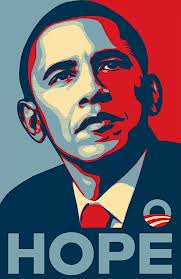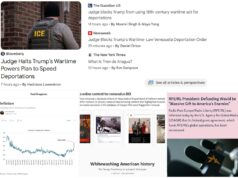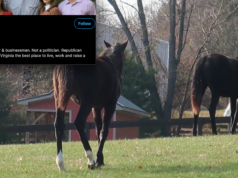( – promoted by lowkell)
 In the previous installment, I promised new thoughts on the mystery of President Obama’s seeking and gaining the pinnacle of power only then to manifest an incapacity to use it against Republican enemies relentlessly seeking to thwart, delegitimize, disempower, and destroy him.
In the previous installment, I promised new thoughts on the mystery of President Obama’s seeking and gaining the pinnacle of power only then to manifest an incapacity to use it against Republican enemies relentlessly seeking to thwart, delegitimize, disempower, and destroy him.
I recognize that some people reject the question, proposing variations either of “He’s in cahoots with the Republicans, only pretending to want to achieve the things they defeat” (this one was popular on Daily Kos) or of “He’s doing just fine given what he’s up against.” Those people will doubtless not be interested in my proposed answer to a question whose premise they reject.
To me, that premise –that President Obama has been extraordinarily unable or unwilling to confront his implacable Republican political foes– is clearly true. In fact, I think it likely will be considered by future historians the salient truth about Mr. Obama’s presidency (at least up to this point– we can only hope the coming showdowns will show him to be readier for battle).
So I maintain that this question is the one to be asking. As for my proposed answer, I don’t want to oversell it. As I said yesterday, it’s speculative, and only partially developed. Consider it a “clinical intuition” (and yes, I do have a background in psychology). I do think I’ve come up with something.
The whole idea rests on a single observation: While President Obama seems astoundingly handicapped in wielding power against his enemies within the American political system, he shows no such incapacity for toughness against external enemies. He’s attacked them with drones. He ordered the lethal attack against Osama bin Laden.
Against those outside the “We” of the community, he can seek and destroy. It’s within the boundaries of the community that he shrinks from confrontation.
My clinical intuition tells me an inference can be made here.
This dichotomy suggests to me a basic template around which, in the course of his growing up, Barack Obama developed a dichotomous — unintegrated — relationship with power and conflict. Something in the original “We” of young Barack’s development, I propose, simultaneously instilled a drive toward power in the outside world and compelled him to relinquish some fundamental personal power within the boundaries of that “We.”
(Indeed, the frustrations from that relinquishment in the realm close by may well have fueled the outward drive toward power. A driving desire for power generally comes from some life issue concerning power that has left unfinished business.)
I don’t have any sense whether this original boundary defining the “We” was within the family — I observed no signs of that in his wonderful book, Dreams From my Father — or whether it was the larger social community of peers, or schools, etc.
But whatever it was, I infer that his accommodation to that microcosm entailed his making some fundamental capitulations. Some important parts of himself would not be asserted. Rather, he would abide by terms demanded by that microcosm — a surrounding “We” with respect to which he felt he must make peace.
One more component of this accommodation might be inferred. While this hypothetical accommodation entailed a real capitulation for the young Barack, this defeat was not visible to the outside world. By keeping it hidden, by acting if he’d surrendered nothing of importance, by not acknowledging that he’d surrendered to the dominance to the surrounding “We,” the young Barack Obama could maintain his dignity.
Hence the president who, within the “We” of the American political arena, accepts dignity as a substitute for power. A president more fully thwarted than any president we have seen — thwarted by a force so outrageous that it could have been shamed into either submission or oblivion — whose comportment nonetheless betrays hardly a sign of the humiliation and frustration from the ongoing defeat of his intentions. And a president who shows little indication of any gut-level determination to counter-attack and assert his dominance.
Under normal circumstances, Obama’s inability to fight the enemy within the gates for dominance would have limited costs. A liberal president giving away his power to a conservative opposition would result in solutions to our problems further in the conservative direction than they needed to be.
But these are not normal times, because today’s Republican Party is not a normal political force. This is a party in the grip of a sick and broken spirit, a party whose virtually every impulse and every move is toward destructiveness.
For a president to give away his power to such an opposition party results not in more conservative solutions to our problems, but in no solutions at all (and even more problems).
It’s been clear from before Mr. Obama took office that dealing with the destructive force that’s taken over the Republican Party is Job One. But regrettably, this is the one job — dealing with enemies within the American political system — that this extremely intelligent and capable man seems incapable of doing.
Today’s Republican Party is clearly a greater threat to the nation than the terrorists that the president has gone after with clones and Navy Seals.
That at this moment in our history, in these particular circumstances, a good man has become president who is crippled in this particular aspect of the wielding of power is a great tragedy for the United States of America.



 Sign up for the Blue Virginia weekly newsletter
Sign up for the Blue Virginia weekly newsletter








